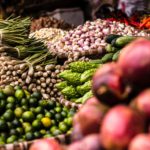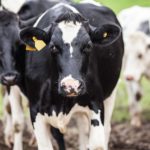This ICTSD article discusses how policies on trade and markets can help to achieve the SDGs. It examines how policies affecting trade and markets are relevant to the new commitments on hunger and malnutrition; looks at past progress and projected trends; and examines options for government action in years ahead.
Read moreKnowledge
How can trade policy be used to transform African livelihoods?
This article from ICTSD discusses how African countries and the international community can overcome the existing challenges to building the poverty-reducing trade needed to meet the poverty-related Sustainable Development Goals in Africa.
Read moreThe role of trade policy reform in advancing the 2030 Agenda
This ICTSD paper addresses how trade is treated in the SDG framework, and possible avenues through which trade governance reforms could help advance the goals and targets embedded in the 2030 Agenda.
Read moreBrexit and some possible unforeseen consequences for third country exports of farm products
As the UK and EU27 prepare to define the terms of their future trade relationship, Alan Swinbank, associate of TKE partner ICTSD, raises some critical questions regarding post-Brexit agricultural trade.
Read moreUnderstanding the UK’s position in the WTO after Brexit: Part II
“Understanding the UK’s position in the WTO after Brexit Part II: The consequences.”
Whilst Part I argued that the UK currently has independent WTO obligations that will continue after Brexit, this follow-up post considers what these commitments actually are and how to give legal effect to them in a new schedule. It also looks at the UK’s post-Brexit position in relation to the Government Procurement Agreement.
Understanding the UK’s position in the WTO after Brexit: Part 1
Understanding the UK’s position in the WTO after Brexit Part I: The UK’s status and its schedules
Read more




